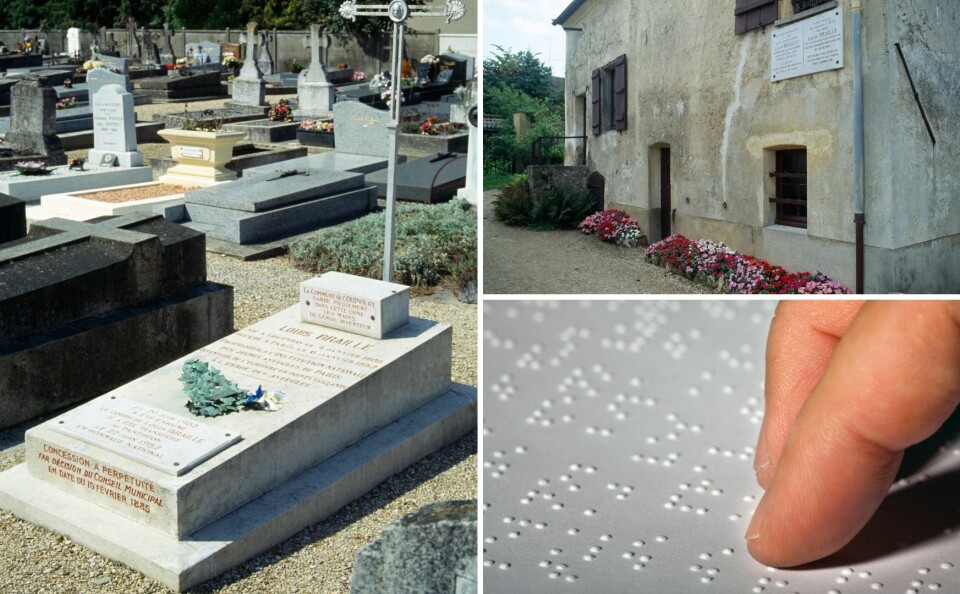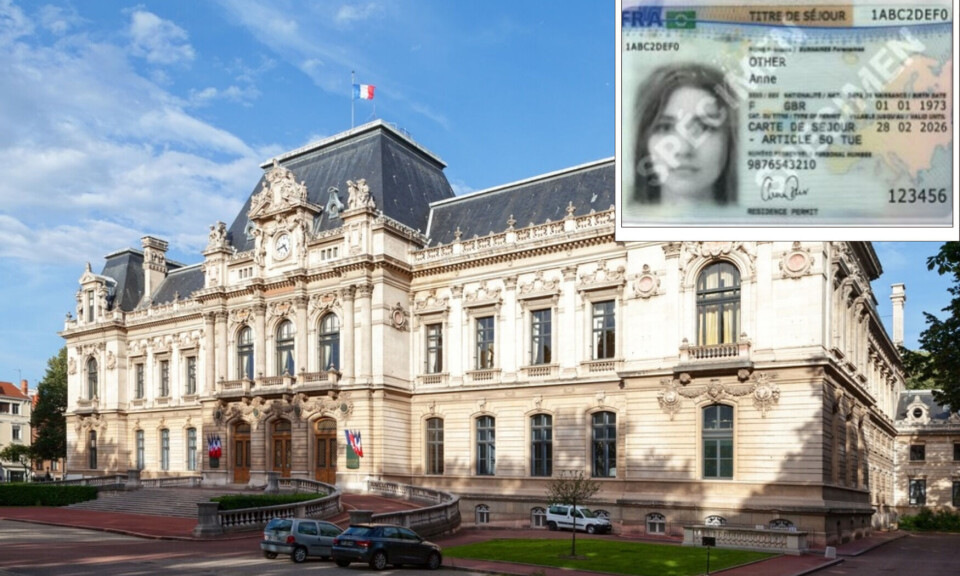-
Martel: the medieval French town home to a 'truffle' train and lavender festival
The small town in the Lot offered refuge to an English throne heir until his death
-
Cherry blossoms galore: Europe's largest Japanese garden is in France
Picnic beneath pink trees and celebrate the tradition of Hanami at the Parc Oriental de Maulévrier
-
Ranking shows the best places to live in France in 2025
A wide range of data and thematic criteria was used to sort 34,935 communes nationwide
Louis Braille’s life and legacy celebrated in French hometown Coupvray
Aged 15, Braille established a writing system that would transform the lives of sight-impaired people globally

Coupvray in Seine-et-Marne is a village of 2,867 inhabitants on the outskirts of Paris, and if the name is familiar, it might be because four of the six hotels for Disneyland Paris are here.
It has a grander claim to fame, however. Two hundred years ago, on January 4, 1809, Louis Braille was born here.
Braille lost his sight aged three after an accident
Braille is now synonymous with the tactile writing system used by people who are blind or have low vision, in which letters, numbers and symbols are represented by a series of raised dots.
Louis Braille himself, however, was not blind from birth, but lost his sight due to an accident at the age of three in his father’s workshop.
The home in which he grew up has now become a museum (Musée Louis Braille), where you can try reading braille yourself.
Despite losing his sight at such a young age, Braille excelled in his studies, becoming a cellist and organist.
Read more: French rapper’s live concert had audio description for blind fans
Aged 15 he had devised a writing system using only six dots
Aged ten, he won a scholarship to attend the National Institute for Blind Youth in Paris (the world’s first school for blind children) and during his time there, he and his fellow pupils read books printed with raised letters, however the system was costly so there was not a huge selection of reading material.
As a teenager, he was introduced to a code called Night Writing, invented by Charles Barbier (1767-1841), with the specific aim of enabling blind people to read (as he clarified in a letter from 1815).
The system was basic but had potential, and young Louis refined it into a sequence of 60 patterns based on only six dots.
At the age of 15, Braille had established a writing system that would be adopted by the sight-impaired community around the world.
Read more: How to become a guide dog trainer in France
Coupvray remained a key location for Braille
Braille stayed on at the Institute as a teacher, expanding his system to include musical notation, yet his own school did not adopt the Braille system until after his death.
He taught history, geometry and algebra there, becoming a professor in 1833, aged just 24.
In the same year, he met Charles Barbier, and the two became friends.
Coupvray remained a key location for Braille. Not only did he spend summer holidays here, continuing to work on his revolutionary reading system aged 13 to 15, he spent his working life within an hour of his hometown.
As a child he was educated alongside the village children, his parents taking what we would call a mainstream approach that was most unusual at the time.
It is said that he learned to navigate his way around the village with a cane his father made for him, and he was quite comfortable in Coupvray.
It appears he suffered from tuberculosis
Braille had reportedly always been a sickly child, and suffered ill-health in adulthood due to an ongoing respiratory illness.
It now appears that he suffered from tuberculosis from the age of 24 until he was finally forced to stop teaching and give up his position as a church organist at the age of 40, dying in 1852 just two days after turning 43.
As well as his birthplace museum, you can find a large monument to Braille in Coupvray’s town square, now named Braille Square.
His body lies in the Panthéon, his hands are buried in Coupvray
To mark the centenary of his death in 1952, his remains were taken to the prestigious Panthéon in Paris to be interred alongside such eminent figures as Voltaire, Rousseau, Marie Sklodowska-Curie, Emile Zola and Victor Hugo.
In a symbolic gesture, however, his hands remain in Coupvray, buried close to his childhood home.
It is worth noting that in 2019, it was decided that World Braille Day would be celebrated every year on January 4, Louis Braille’s birthday.
He might have lost his sight as a child, but he was a visionary in every way.
Quote from Louis Braille:
“Access to communication in the widest sense is access to knowledge, and that is vitally important for us if we [people who are blind] are not to go on being despised or patronised by condescending sighted people. We do not need pity, nor do we need to be reminded we are vulnerable. We must be treated as equals – and communication is the way this can be brought about.”
Related articles
The only six women in history to be ‘reburied’ in the French Panthéon
Frédéric Chopin: the short life of a musical genius
Mimie Mathy: French TV star who turned disability into a driving force
























